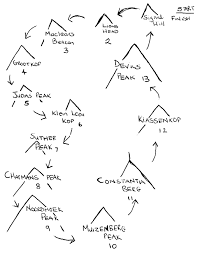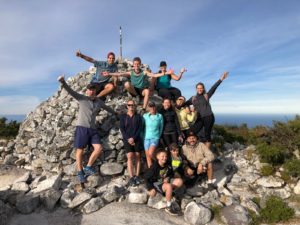Mandi Hart's Blog
May 3, 2022
Safe home, a porn-free zone

Love your children by keeping them safe. Prepare your children by educating them. Open your arms wide so they know you are always there. It’s up to us to make this world safe for our children.
I’ve heard it said countless times over, “It’s not a question of if they will see it but when they will see it.” You know what I’m talking about, right?
Porn.
Raising children is like riding a rollercoaster, It’s thrilling, but a little daunting at times. The question I often ask myself is, what do my children need from me now? I take notice of their ages, stage of development and life challenges, then respond with love.
Now, I’m not a parenting expert, but I have raised two children into adulthood – and they are still alive, smiling and our relationship with them continues to grow.
One thing I’ve learned along the way is that if you don’t speak to your children about sensitive or tricky topics, then they won’t necessarily come to you. You, as the mom or dad, have to start conversations early on. And it is up to you to ensure that your home is a safe place for all.
Safe homeLast week, I attended a talk on sex education for children. The speaker said that the latest research emerged with statistics that children are now exposed to porn around 7-8 years of age. It’s getting younger and younger, and we have to speak up.
Communication, openness, and trust are the foundation for many talks about porn and sexuality. These conversations begin in our home and need to continue all throughout the years they are in our home (and possibly beyond).
Where do we begin?Firstly, pray about purity and wisdom. Ask God to direct you and your steps as you lead your family. Pray for your children, their friends and the influences in their lives. What a joy it is to partner with the Lord as we raise our children. We are not alone, the Lord will gently lead us.
Isaiah 40:11 reminds us, “He tends his flock like a shepherd: He gathers the lambs in his arms and carries them close to his heart; he gently leads those that have young.”
Secondly, remember to keep talking and open communication in your home. Family chats are great, with all the adults and children around the table. Start when they are young, and talk about appropriate and inappropriate physical contact. Encourage questions and age-appropriate frank conversations.
Thirdly, educate your children. Talk to your children about what part of their body is a ‘public’ part (e.g., arm) and what is a ‘private’ part (e.g., bum). Train them about ‘good pictures, bad pictures’ and educate yourself.
Download my free ebook on Keep them talking for an extra resource.Fourth, apply wisdom with sleepovers and helpers. Exercise discretion, wisdom and sound judgment here. Don’t be afraid to ask questions, do background checks and get support.
Fifth, decide in advance the rules of the game if your home is to be a porn-free zone. For example, set up a smart device/social media contract, or set up internet filtering software. Protect your children and yourself by setting up blockers on devices. And finally, consider that neutral spaces can be safe places. Charge devices in a neutral area such as the kitchen or lounge. This means that all devices (including yours) are there overnight and not in the bedroom where temptation lurks. Model transparency for your children this way.
We also decided that our children were not allowed to watch TV in their bedrooms. Even when friends came around, they had to stream or watch TV in a public space. It wasn’t easy, but so worth it.
If we are to raise world changers, then topics such as these must be discussed in our homes and with great love and grace. Be a safe space for your children.
A few years ago, I was asked this question: “And when that time comes; will your child be prepared enough to react appropriately and run away?” What’s your answer?
Now more than ever, our children need us to prepare them to handle that moment.
Call it, turn away and talk to someoneWhen you see it, call it what is: pornography is a bad picture.Turn away and turn it off immediately (if need be role play with your child what they can do and say if they get shown porn).Talk to a trusted adult (mom or dad). Parents, affirm your children that you love them and that they can come and talk to you about absolutely anything. They must feel safe with you and that they can talk to you.“You can make your children safe in the world, or you can try to make a world safe for children.” – Unknown
April 21, 2022
20 inspirational and funny parenting quotes

Parenting is another way of ensuring you don’t really know as much as you think you do. Here are twenty parenting quotes I could find. The goal? To encourage and hopefully inspire you to raise and release world changers. And some quotes are here just for laughs. They are a little ridiculous, but hopefully, they will make you smile. Enjoy!
Parenting quotes to inspire you“Instead of buying your children all the things you never had, you should teach them all the things they did not teach you. Material wears out but knowledge stays.” – Bruce Lee
“We have to prepare the child for the path, not the path for the child.” – Tim Elmore
“Don’t worry that children never listen to you; worry that they are always watching you.”- Robert Fulghum
“I don’t think anyone can grow unless he’s loved exactly as he is now, appreciated for what he is rather than what he will be.” – Fred Rogers
“Your children need your presence more than your presents.” – Jesse Jackson
“A child identifies his parents with God, whether or not the adults want that role. Most children ‘see’ God the way they perceive their earthly fathers.” – James Dobson
“God has whispered His purposes into your child’s heart. It is your privilege to uncover the secrets in their hearts through prayer and scripture. Every person has tremendous worth.To be born means that you have a purpose, that you are precious and that you are worthy of love.” – Mandi Hart
“Praise your children openly, reprehend them secretly.”- W Cecil
“Start children off on the way they should go, and even when they are old they will not turn from it.” Proverbs 22:6
“Children are a heritage from the LORD, offspring a reward from him. Like arrows in the hands of a warrior are children born in one’s youth.” – Psalm 127:3,4
“Parenthood…It’s about guiding the next generation, and forgiving the last.” – Peter Krause
“Encourage and support your kids, because children are apt to live up to what you believe of them.” – Lady Bird Johnson
The lighter side of being a parentSometimes, we need to smile at being a mom or dad. Intentional parenting isn’t always serious stuff, and it’s time to ditch mom guilt too.
“The hardest part of parenting is being fake mad when they do something that is actually hilarious.’
‘Silence is golden…unless you have kids, then silence is suspicious.’
‘You can learn many things from your children. How much patience you have, instance.” Franklin P Jones
‘If I ever go missing, please follow my kids or my dogs. They can find me, no matter where I try to hide.’
‘I don’t want to sleep like a baby, I want to sleep like my husband.’
‘The biggest thing I remember is that there was just no transition. You hit the ground diapering.’ – Paul Reiser
‘They say it takes a village. Where can I get directions to this village?’
‘The quickest way for a parent to get a child’s attention is to sit down and look comfortable.’ – Lane Olinghouse
When there’s a quote that speaks to your heart, it can be a good idea to keep it close by. Print it out and hang it on the fridge, store it on your smartphone, or write it on your calendar. Looking at a quote that reminds you of the bigger picture could be key to helping you be the best parent you can be – and bring a smile to your face.
April 11, 2022
Seven lessons from our parenting journey

Becoming a mom was a culture shock for me. When I fell pregnant with my eldest, I thought I had this parenting thing wrapped up in my mind. Never mind the fact that I hadn’t changed a nappy, let alone burped a baby or even babysat a toddler.
I still remember over 20 years later how Neil and I drove home with Matthew in his car seat at probably 30km/h wondering, wide-eyed, how the hospital let us out with this newborn. And then, almost two years later, with Emily snuggled into our arms, we introduced her to her big brother. Our family was growing.
Growing into being parentsFast forward a few years later, we settled into our groove as parents of two children and, frankly; I found it equally challenging, but thrilling as well. It was a powerful moment when I realized that perhaps our greatest contribution to this world is not what we do but who we raise. This thought was a sobering moment. Right there and then, I resolved to love deeper and, together with Neil’s help, raise our children more intentionally.
Seven lessons from our parenting journey An intentional focusWe focused on parenting in the manner that our children needed us to. It was specific for the stage of development they were in. It wasn’t just a free for all. We worked on getting the authority vs influence proportion in its place. When our children were babies, our authority was at an all-time high. Simultaneously, our influence was almost zero. But as they grew up, the proportion of authority vs influence slowly changed. Now that they are in their early 20s, we aim to love them and guide them through our influence and the depth of relationships that we have with them.
No perfection, just real lifeWe removed the pressure to be perfect parents. We had to remind ourselves to parent with grace. There are no perfect children, parents or families. We all make mistakes, but it is our response to when we get it wrong, that makes the difference. Forgiveness, repentance, and honesty go a long way when we model humility.
Relationships matter“The best kind of parent you can be is to lead by example.” — Drew Barrymore, actress
We thought about what we could do to build healthy connections with our children. Not only that but how could we grow the relationships in our home? We spoke about what our children need from us at that stage of development, how we could best communicate with them and what boundaries we needed to put in place. There were plenty of robust conversations behind closed doors, lots of prayers and seeking advice, but we were focused on the fact the relationship above tasks were the order of the day in our home.
Each child is uniquely themselvesWe recognized our children were not mini-us. They were their own person, with their unique gift mix and quirky traits. It was up to us to cultivate an environment where they felt safe, celebrated, and free to express themselves. We aimed to support them as best we could. I think that as parents, we often want our children to enjoy the same activities we do. Whilst that might happen, I think we should give them the freedom to choose. Encourage and support your children because they are likely to live up to what you expect of them (provided these are healthy expectations).
Keep a sense of humour alive“My doctors told me I would never walk again. My mother told me I would. I believed my mother.” — Wilma Rudolph, Olympian
There is nothing like children in a home to keep things real. Parenting without humour is like an artist who hates to paint. Laugh and lighten up. I have to remind myself that more often than my husband. They are truly a gift from God and make life so much more colourful and messy. Enjoy the mess, be thankful for dirty dishes and smelly socks. These days of raising our young are ones we will remember for years to come.
Get helpYou don’t have to raise your children like you are living alone on an island. Get help if you need it. Some stages of development seem to be easier than others, and that’s ok. I struggled with babies but really loved every stage from thereon. I found it easier when my children could communicate in words. Yet, I have friends who adored the baby phase but the teen years leave them petrified. We ask friends who were ahead of us on the parenting journey questions and that helped us tremendously. We attended parenting courses and read books too.
Pray and then pray some moreStart praying for your children, their potential future spouses and the generations to come after them now. It’s not too early to bless the generations that will come after you. Prayer is powerful. Spending time seeking wisdom from the Lord, and interceding for your children’s lives, is one of the greatest gifts you can give them. Pray for them, speak Scripture over their lives and trust God because He loves your children even more than you do.
This is one of my favourite passages that I often prayed: I asked God (and still do), to gently lead us. “He tends his flock like a shepherd: He gathers the lambs in his arms and carries them close to his heart; he gently leads those that have young.” Isaiah 41:10.
I’d love to hear from you, so please let me know in the comments what else would you add? What’s on your parenting life lesson’s list?
February 17, 2022
Love’s touch frees from fear

I was asked me recently about how the power of fear can control and affect a person’s life. From experience and research, I know that fear leads to one of two reactions. Either we pretend it doesn’t exist, or it paralyzes us. Fear ties us up with chains, locking us up from living life in full colour.
Fear lies to us. Love leads us into truth.It’s actually love that frees us from fears chains. Love makes us feel safe, seen and heard.
Feeling safe is fundamental to our well-being. When we feel loved emotionally, mentally and physically safe, we find it easier to take a risk, reach peace of mind, plus sleep better.
The present comes alive.We have a choice to make. Like LJ Vanier wrote, “I don’t always make the best choices, but today I choose compassion over intolerance, sympathy over hatred and love over fear.”
When we feel safe and secure, it enables us to live and be present, right here, right now. No longer do we live in the past or long for the future. We can be fully present. The results are profound. Your family, friends and work colleagues will thank you! The gift of presence is so rare these days. Think about it. How often are we focused on the person in front of us?
What makes you feel safe?Firstly, it is a sense of having control over yourself. We can cultivate self-awareness by paying attention to what’s going on in our bodies and mind.
Second, knowing deep down that you are loved. Love frees us to be who God intended us to be. Love is free from torment and punishment.
Third, being able to explore challenges and discover healthy boundaries. One lesson I learned a few years ago is how to say ‘no’. Being able to say ‘no’ to certain things leads to life. In order to say ‘yes’ to the best things for my life and family, I have to say ‘no’ to some other things. Saying ‘no’ to fear’s control leads to saying ‘yes’ to living fully alive! If we don’t establish healthy boundaries for our lives, then no one else will.
Fourthly, freedom comes when we give ourselves permission to rest, feel, try something new, or even seek help. Joy will emerge in profound ways. Will you say ‘yes’ to love and ‘no’ to fear?
Love’s touch frees us.Feeling safe vs being safe.We can define safe as free from harm or hurt. So, feeling safe means you anticipate neither harm nor hurt, emotionally or physically.
When last did you not feel safe? Perhaps it was a terrible rainstorm or driving on the freeway? When we feel unsafe, our emotions are all over the place. When I was feeling unsafe, I was scared and anxious, and my body, at times, froze in place. My heart pounded and my mind was racing to figure out what was going to happen next. It often happened at night when someone shone a torch or a bright light was directed my way. Because I was not in control of my body’s reaction, the panic was closing in. The trauma from the armed robbery affected my daily life for many years. But, there is good news.
Working through the fear, feeling unsafe and trauma, was a journey of discovery. Over time, my body and mind healed. I spent time in prayer, reflection, counseling and being with others who helped me experience safety. Love freed me.
Here are a few journaling prompts for you to think about:1. What scares you?
2. What calms you down?
3. What makes you feel safe?
4. Does love need to envelop you?
Live in the light, let love be the catalyst for freedom and a world of possibilities will open up to you.
Are you looking for encouragement or support to overcome fear? Mandi is a regular speaker on the radio, trainer, and coach. She also offers bespoke coaching and helps others overcome obstacles. Contact her for more information.
January 24, 2022
5 lies you need to stop telling yourself
Lies left unchecked can really mess up our lives. It’s so much easier to believe that negative than to live out the positive or even the truth. I hope that this blog will shed some light on 5 lies we need to stop telling ourself.The words we speak shape our lives. But before we speak them out loud, there is a narrative in our mind that directs those words.
“A new study has found the average person has more than 6000 thoughts every day. Researchers have developed a new way to determine the beginning and end of each thought. Identifying this moment as a “thought worm” has allowed scientists to calculate exactly how many we have a day – and the average was a staggering 6200.”
That’s a lot of thinking going on in our grey matter. What you think makes a difference. Learn to renew your mind and your life will change.
5 lies you need to stop telling yourselfFirst, I always mess things up.Isn’t that a sneaky lie? Lies tend to lure us into speaking in absolutes. We know the truth, however, it’s far easier to believe the lie. Yes, you will make mistakes. “To err is human,” wrote Alexander Pope, poet of the Enlightenment, around 1700. It is natural to make mistakes. It is here where we make mistakes that we learn.
So, how can you replace the lie? Tell yourself next time that it’s okay to make mistakes and that you are learning, trying and growing.
Second, people will laugh at me or reject me.How often do we think others will reject us when we take a stand or try something new, when in fact, it is often the opposite? Their respect for you will probably only grow. Just recently, a friend of mine decided she thought her friends would ridicule her. Much to her surprise, they supported her and respected her for taking a stand. Their response bowled her over. There is a saying that we if stand for nothing, we will fall for everything. Alexander Hamilton was the closest aide and advisor to the USA’s first president, George Washington. Take a stand for something meaningful and see the world around you change. Don’t believe the lie!
Thirdly, nothing ever works out for me.We speak our realities into existence. God created the world by saying the words out loud. It’s been proved that our words have the creative power to shape our lives and those around us. When you’re tempted to think these thoughts, let alone speak them out loud, take a moment and pause. Is that the truth? Think about your relationships, hobbies, ideas, business, or even your life.
How do you do this?
Well, you need to shift your focus and attention from what’s not working in your life, from what’s missing, or going on bad all around you into what’s working. This might mean that you stop watching the news or listen to voices that break you down. Count your blessings and start focusing your attention on the good that you do have in your life. Treat yourself as you would treat your best friend.
Fourth, I’m not good enough.This is a lie that I’ve heard spoken out loud from many, many women. Those feelings of being found wanting can rob you of joy, energy, and even hope for the future. It affects your self-image, your posture and your outlook on life.
The Bible speaks of loving your neighbor as you love yourself. How do you do this practically? Look at your talents and skills. Write them down. You could even message a few friends and ask them what they think your strengths are and if they were to think of you, which three words come to mind. I’ve done that before and was pleasantly surprised. It helped me make decisions that lined up with my gift mix.
Fifth, I’m afraid I will fail.Fear of trying results in inactivity, which masks as procrastination. The fear stops you from even getting out of the starting blocks. Fear of failure is something that I struggled with as a child. Can you believe I refused to swim in a gala when I was seven because my mother couldn’t guarantee that I would win! Ludicrous right. That fear of failure was so strong in my life that it stopped me from trying new things. When I eventually recognised its role in my life, I could deal with it and get rid of it. It takes some intentional work but is oh so worth it. I hired a coach, chatted with my friends about it and took proactive steps to rid fear of failure from my life. It started with acknowledging I was afraid of failure, then looking back at my life and seeing where it affected me, changing the narrative in my mind and cultivating self-awareness. What freedom and joy I now walk in. And you can too!
Take courage, and begin to walk in greater awareness of the lies you might believe, then get going to kicking them out of your life.
You can dream big.
You may make mistakes.
You can reach your goals.
More than that, you are more loved than you ever know.
November 2, 2021
Decision-making 101

Wisdom helps us make better choices“I believe the single most significant decision I can make on a day-to-day basis is my choice of attitude.” Charles Swindoll
Wisdom fascinates me. What’s most interesting about wisdom is that we can ask God for it, we can learn about it and we can grow in it. Wisdom doesn’t always appear like a cloud in the sky. It is a gift to us and it is a skill.
They define wisdom as the quality of having experience, knowledge, and good judgement; the quality of being wise. It is also the ability to know what is true or right. When we make decisions about what to eat, where to live, which relationships to invest in, or even what business to start, we need more wisdom than we ever could imagine.
Life is made up of the sum total of all our decisions.In an article on how many decisions adults make, the writer had this to say, “Researchers at Cornell University estimate we make 226.7 decisions each day on food alone. And as your level of responsibility increases, so does the multitude of choices you have to make. It’s estimated that the average adult makes about 35,000 remotely conscious decisions each day. Each decision, of course, carries certain consequences with it that are both good and bad.”
35 000 decisions! WOW! That’s a lot of decision-making in a 24-hour period.
For every yes there are several no’sIf I wanted to run a marathon and said yes to that opportunity, then I would have to say no to plenty of other things. For example, time spent training vs staying in bed a little longer or even my nutrition choices might have to change. Years back, I learnt the hard lesson that we cannot say yes to every opportunity. That’s simply not wise and so I practice saying ‘no’ so that I can say yes to the things I am called to do in this season of life.
Here are a few pointers to guide you in your decision-making ability:Make sure you know what the decision is that you need to make.Often we are don’t have clarity on what the decision is that we need to make. Clarity goes a long way in helping you ask the right questions to get to a decision. It is often said that the right question illuminates, not the answer.
Weigh the pros and cons.I know that this might seem pretty obvious, but make a list of what’s good about the decision and what isn’t. Then decide which outweighs the other. It’s as simple as drawing two columns and making a list.
Listen to your gut.‘Always, always trust your first instincts. If you genuinely feel in your heart and soul that something is wrong, it usually is.” Anonymous
Find a place to get quiet and just sit and listen to what your inner voice is telling you about the decision. Have you prayed about the decision? What does the Bible say? What thoughts or feelings come up?
Consider the impact on others.Wisdom reminds us to consider things from every angle. Think through the decision from beginning to end. How will it impact those around you? Every decision we make has an impact on the people in our lives. And in doing so think about how does the decision align with your passion, values, and priorities?
Avoid making a decision out of fear.Fear is a terrible master. When we make decisions out of fear, it can only lead us into isolation,confusion, and even despair. Fear is not your friend and if you feel as if the choice is made because you are afraid of failure or rejection or any other fear, then I want to encourage you to hit pause on that decision. Look for wise advice from those you trust.
Seek advice.Wisdom is found in counsel from those who love you and are on your side. Share your thoughts with someone you know and trust. Sometimes the biggest help is simply hearing yourself talk out loud about what you’re thinking and why you’re thinking that way. Proverbs 1: 5 reads, “Let the wise hear and increase in learning, and the one who understands obtain guidance.”
Then, when all is said and done, make your decision. Step up and go for it. You can make wise decisions that will benefit you and those around you.
The post Decision-making 101 appeared first on Mandi Hart.
September 1, 2021
Six keys to discipling your children

Discipleship is journeyBe the kind of parent that inspires hope in their children. You are their first disciplers and it is both a privilege and a joy.
In essence, discipleship is a journey on a road together. When we disciple our children, we are training and guiding them. When I first learnt about the word, ‘discipleship, it was a very abstract term and I was pretty confused about how it worked. Then, I became. a mom and I realized that my spiritual ceiling was their floor. Their journey began where I was at the time.
It’s a great joy to introduce your children to JesusMany of us grew up in a home where spirituality wasn’t spoken about. For some parents, the thought of discipling their children could be overwhelming. In this post, I want to offer your a few ways to disciple your children.
1 Don’t be afraidDaniel Wallace reminded us, “It would be better for us to have some doubts in an honest pursuit of truth, than it would be for us to be certain about something that was not true.”
Your children, as will you, at times, experience doubt and uncertainty. Don’t be scared of those moments. Rather, use them to uncover the truth of the matter. Welcome their questions, their doubts and uncertainties. Surround yourself with people who can walk with you, answer your questions and search for the hidden treasures together as a family. What a joy it is to uncover the deep things of God together. Encourage robust conversations around the table and depending on their age, talk about a wide range of topics. That is discipleship, honest life-on-life.
2 One-on-one encountersHere, you would spend time with your children teaching them about the Word of God, His ways and how to hear his voice. You model praying, hearing the Holy Spirit’s voice and obeying what the Lord tells you to do. We can all hear God’s voice. Encourage your children to pay attention and listen to what God tells them. Teach them about hearing the Lord’s voice through dreams, pictures, in nature or even tuning into that ‘still small voice.”
Share with them how God speaks to you and what you have learned over the years.
3 Use technology for goodWatch movies together that reinforce home a Biblical message and then speak about it. Watch YouTube videos together or expose them to applicable Podcasts and even Instagram pages. But, parents, do your homework and research it well. The Bible Project and Focus on the Family are two wonderful resources you can explore.
4 Join a spiritual family togetherYour children can also be discipleship in a broader spiritual family. Meeting other families and children who follow Jesus will encourage them and strengthen your family bond too.
5 Encourage deeper conversationsIn Parenting World Changers, I wrote about initiating good communication in the home, “Heart-to-heart conversations can impact your child’s head and heart. We present facts to validate what we are talking about and stories that can capture their hearts. Children don’t necessarily know how to initiate communication with their parents. Good communication involves two-way listening and responding.
As a parent, listen with all your senses when your child speaks. Take time to listen with empathy and pay attention to their non-verbal cues. Ask relevant, non-judgemental questions. This type of communication touches their heart with love and their mind’s with information.”
6 Cultivate a curious mindGeorge Eliot wrote, “It is a narrow mind which cannot look at a subject from various points of view.”
Again, in Parenting World Changers, I wrote about teaching your children to ask brilliant questions. Incidentally, Jesus used question asking as His preferred style of training.
Great questions to encourage significant conversations in your home
“Our implicit belief system is established before we are seven years old. This means that what we think about the world, about love, people, time and so much is already embedded within. We can still shape our children over the years. Continue to build a loving, trusting, and healthy relationship with your son
and daughter. Where you spend your time, your money and with whom indicates where your values lie.
These conversation starters are here to help uncover and help shape specific values within your child. The other bonus is that you are opening up a two-way conversation and building relationships. What a win for the whole family – give it a go!”
Below are only 10 of the questions I have in my book.
1. What do you see yourself doing in 5 years? 10 years?
2. What do you o when you feel bored?
3. Who is your hero and why?
4. What music makes you particularly happy?
5. How do you handle stress?
6. What do you enjoy doing for fun?
7. What really makes you angry and why?
8. What makes you most afraid?
9. What makes you laugh?
10. Do you believe in soul mates and true love?
If you have any questions on this topic, please contact me. I’d love to hear from you.
The post Six keys to discipling your children appeared first on Mandi Hart.
August 19, 2021
13 Peaks Challenge, and what we learned along the way

“You keep putting one foot in front of the other, and then one day you look back and you’ve climbed a mountain.” – Tom Hiddleston
Earlier this year, we climbed the 13 Peaks Challenge around the Western Cape, South Africa. It’s the brainchild of athlete, Ryan Sandes. “The 13 Peaks Challenge isn’t a race, it’s about getting out there and exploring our beautiful wilderness areas. It doesn’t matter if you hike or run, take two days or months to complete, the most important thing is you have fun doing it.”
We gathered a motley crew of adventurous trekkers, some we knew, others only through social media, but they became friends on the journey.
13 Peaks during 2021Peak 1 & 2And so, later in the summer of 2021, we launched out from Signal Hill and onto Lion’s Head. That first hike, full of expectation and very little awareness of what was to come, saw the sun dawn onto an exquisite summer’s day. But, I pulled my calf muscle halfway up Lion’s Head. It was tender. However, my husband’s encouragement kept me going. Our group of 15 finished the day with smiles all around and me nursing a bruised calf.
Peaks 3, 4, & 5Thankfully, one of our dear friend’s is a physio who promptly treated my leg and strapped me up with firm instructions on how to keep going strong. Her treatment was a lifesaver and so the next weekend, we ventured up Table Mountain to tag Maclear’s Beacon, GrootKop and Judas Peak.
What no one prepared us for was the treacherous descent into Hout Bay. Picture after 21km on the mountains. With eagles flying around us, freestyle mountain climbers doing their thing and tired bodies, we made it down the mountainside. But, oh the joy after finishing! I still remember polishing off the most delicious burger with Neil and my sister.
Peaks 6 & 7Klein Leeukop (Little Lion) & Suther Peak were two interesting peaks. I think because the terrain varied so much, from loose gravel to beach sand, to climbing boulders. But, as always the reward of the view on top of the peak made is so worth it. Cape Town certainly showed off that day.
Peaks 8, 9 & 10A few weeks after that, a much smaller group decided to tackle Chapman’s Peak and Noordhoek Peak. I must say, these are two of my favourites. The views up there are breathtaking. And the joys of climbing up boulders, go through varying terrain made it exciting. By the way, if you’re interested in doing 13 Peaks, make sure you take your car keys with you and don’t leave them behind in the vehicle at the start, as you might just have to run back down and up again, as three of our teammates experienced.
We finished that day by tagging Muizenberg Peak. Seeing the surfers down at Muizeburg corner made us long for the water.
Peak 11After a winter’s break, mostly due to rain and schedules, we started our journey again. Led by two talented young trail runners, our crew launched out to snag Constantia Berg. which for some was around 20km and others wanting to go further (not by choice), about 28km. The route was one of the easiest, as some of it was on a tar road through the mountainous areas.
Peak 12 & 13Finally, the day dawned and our crew set out to complete the challenge. The last two being the most difficult and easiest for some of our group (go figure). It had been raining and the abundance of waterfalls kept us in awe. Klassenkop was a delight. You have to climb literally through a tree to tag the peak. And then through Newland’s Ravine, up and up till you reach Devil’s Peak. Just when you think you’ve made it, you realize that the beacon is not the first one but the one a little higher up. Devil’s Peak is a tough one to finish. But, as we learned, if you keep on putting one foot in front of the other, you will get there.
I personally loved the descent which was a reprieve on the road from near the Table Mountain Cable car to the finish at Signal Hill. The final 8km along the road was just what I needed. I had time to think, to be grateful and savour the moment.
Hannah (one of the team members) had this to say, “Every mountain climbed symbolised an obstacle overcome in my life. If you can summit Devils peak, Maclears Beacon and the other 11 peaks you can basically do any thing and overcome anything this world throws at you”
Thank you to everyone who joined us for one or more peaks, to the two young men who led our team and helped us not get lost, we are grateful and to those who helped lift us back to the start, to collect vehicles and provided us with much-needed support, we are thankful. So, what’s our next challenge? What’s yours?
Every fresh peak we ascended (and descended) taught us something new.Ten things I learned while completing the 13 Peaks ChallengeWe traversed over114km and over 6600m in elevation in total. Being able to hike and run through these mountains was an absolute privilege and joy. Here’s what I learned ablong the way:
When you begin a new journey, you don’t always know what to expect, but start you must. If you dream of doing something, don’t wait until the perfect moment. Get a group together and go for it. You will come away richer and changed.You are so much stronger than you think. When you are struggling up the mountain or descending a ravine, and you’ve lost your sense of humour, just take one more step, then another step and after a while, you will find you’ve reached your destination.Pack food you enjoy for the journey. Food that will nourish you and make you smile. Some of our teammates even packed chocolate pudding and coffee. Who would’ve thought?Warmth is key. Near the end of our Peak Challenge, I wore gloves, and they were a lifesaver. It was a chilly winter’s day, but these gloves helped me regulate my body temperature. Wear the right gear for the right activity. Be wise.Take time to look at the flowers, the waterfalls, the birds in the bush or eagles in the sky. Don’t push so hard that you miss the surrounding beauty. Savour the moments and take photographs in your mind because afterwards, the moments and memories will make you smile. For in years to come, you might wish to remember days such as these.“It is not the mountain we conquer but ourselves.” – Sir Edmund Hillary. Everyone arrives with things going on in their lives. Time on the trails is great for reflection and processing. I did some of my best deep thinking on this challenge.Go at your own pace. Some are faster going uphill and others are a speed machine on the downhills. But, in the end, you all get there together. Everyone is somewhere different on the journey. We are all doing our own challenge. Stay your course and keep on smiling.Never underestimate a mountain or your own courage. When you do a challenge such as 13 Peaks in a team, then the strength of the group, their encouragement, sense of humour and tenacity can carry the others. We are not meant to live this life alone.When you’re high up on a peak, and all seems well in the world, take the moment in. Breathe deeply and stay present.Finally, enjoy the sense of accomplishment, celebrate with those you love and take it all in. Don’t rush into the next thing.Photo Gallery“May your dreams be larger than mountains and may you have the courage to scale their summits.” – Harley King

 .
. 












The post 13 Peaks Challenge, and what we learned along the way appeared first on Mandi Hart.
August 18, 2021
Five ways to draw out the gifts and talents in your children

Intentional parents take time to draw out the gifts & talents in their kids. They cultivate their potential through encouragement & support.
Every single human being is filled with gifts and talents, kind of like a locked treasure chest, just waiting to be opened. When my children were toddlers, I used to watch them intently, trying to understand what made them sparkle. Over time, I noticed a pattern. Certain things made the one smile and not other, the one enjoyed a creative expression whilst the other kept on trying to figure out how things worked. These are all clues.
1. Cultivate awareness and take notesWithout a doubt, we live in a distracted world. The competition for our attention is fierce out there. However, one trait of a parent who raises a world changer is that they are an intentional parent. Cultivate awareness when you’re around your children. Take notice of the things they are interested in or the compliments they receive. Notice what makes them tick and what drains their hearts. These are all clues and then write it down. Keep a record of these things so that in years to come, you can look back and see how far they have come.
Why don’t you take a few moments and record the following about your children:Their name and the meaning thereofTheir talents and gifts.Don’t forget to include what kind of adult you dream of them becoming.Scriptures or comments they have made that are significant.Intentional parenting happens when we look at the big picture and long-term vision and then head in that direction. I created a parenting journal that I’ve done just that and plan of giving this as a gift to my children when they are 21.
2. Intentionally develop their skillsWhat talents are your children displaying? How can you open up an invitation to develop those talents with skills? What do you need to do to help unfold their lives? Depending on your children’s age and stage of development, make time to teach them skills they can build on in years to come.
3. See, hear and encourage your childrenBarbara Coloroso said, “Encouraging a child means that one or more of the following critical life messages are coming through, either by word or by action: I believe in you, I trust you, I know you can handle this, You are listened to, You are cared for, You are very important to me.”
If we are to bring out the potential within our children, then we would be wise parents to create a safe place at home. When our children feel safe, then they can take risks and try new things. Let them know that you are on their side and are cheering them on.
4. Pray for your childrenLike any mother, I carry many dreams in my heart for my children. Since pregnancy, my journals have records of the hopes I stored within for my two kids. I have watered these deep thoughts with prayers and care. When we pray for our children, we can partner with the Lord in releasing them into their own destiny, not what I think it should be. It’s in those times of prayer, that I surrender them again to God’s care, and faithfully raise them to become healthy, well-adjusted adults.
I’ve prayed prayers of intercession, of petitioning, of repentance (for when I didn’t parent my children as I should have) and I’ve prayed about the releasing aspects of being a mom. Did you know that even Mary, Jesus’ mother, carried the thoughts and prophetic words in her heart (and thought about them often). Read Luke 2 and the account of what happened from when He was born till he was about 12 years old.
5. Learn about different types of creativity/intelligences.In my book, Parenting World Changers, I wrote about this at length:
“Remember that education isn’t just our children going to school or learning to read. If God created us, then we must express the way He made us through our creativity.
“Great things are not done by impulse, but a series of small things brought together,” wrote Vincent Van Gogh. The desire to create is one of our deepest longings. So, what does this have to do with our response to education? If more parents realized that children could learn in different ways, then we can cultivate a generation that learns creatively.
How can you develop your child in different ways:
The eight multiple intelligences offer plenty of options for raising your children to think with creativity, mystery and boldly.
Social or interpersonal relationships – help your child build relationships and discuss ways to grow this form of creativity. For example, you could encourage your child to do community projects, join the debating club and participate in team sports.
Visual or Spatial – create space for your child to express creativity. Gift your son or daughter with art supplies in various mediums. This child loves to draw, paint and enjoys colors. Teach mind-mapping as a means to learn, create and dream.
Musical – Educate your child in this area by taking them to concerts, allow them to learn to play an instrument, sing with them. Expose your child to various musical genres.
Logical/Mathematics – These children love to solve problems and work with numbers. Give them money to count or let them create a schedule for the family. Kinaesthetic – Children like this thrive and learn via movement. Get them a big ball that they can sit on while they do homework or encourage them to move while they learn. Teach them about body language and encourage physical activity.
Verbal/Linguistic – Help your child to tell stories,engage in conversations with their peers. They might also be verbal processors.
Naturalistic – These children are fascinated with nature. Encourage them to collect specimens, watch nature programmes, follow animal footprints or even photograph landscapes.
Intrapersonal – These children like to study alone. Encourage them to keep a personal journal. Give them space to be energized through alone time.
As you raise your children, you are part of unfolding them into becoming a man or woman who can truly make a difference in this world for good!
Click here to download this free printable to cultivate gifts & talents in your children.
The post Five ways to draw out the gifts and talents in your children appeared first on Mandi Hart.
July 30, 2021
Motherhood and Mental Health: How to Balance Both

Motherhood is a rewarding but challenging job. It is also quite a juggling act. It requires balancing your own needs as a mother/woman and those of the child/children while protecting and actively guarding your mental health.
Many first-time mothers imagine motherhood as an uplifting and fulfilling experience, and this is true. But, it is also tiring, frustrating and sometimes, downright drudgery.
Modern living, especially lately with the pandemic and lockdowns and the resultant financial and social implications, can deplete psychological resources. Motherhood taps into the already depleted psychological resources, making women more prone to various mental health issues.
Mental health is the realization of our well-being with the ability to cope with the daily stresses of life. Mental health affects how you behave, feel, and manage your daily activities.
Mental illness may include conditions like schizophrenia, postnatal and antenatal depression, anxiety, and depression.
Some mothers may experience these mental conditions for a short period. For example, after birth, you may experience postpartum depression for the first few weeks or months. Likewise, depression or anxiety may occur in response to a previous life event or trauma. However, some women grappling with chronic anxiety, bipolar disorder, depression, or schizophrenia have long-term experiences. As such, they may need extra support and treatment to manage their mental health.
Impact of mental health on motherhoodA mother with mental health issues faces all motherhood challenges as other mothers. But mental illness may inhibit your ability to provide healthy motherhood. Depending on your condition, you may face challenges such as irregular sleeping patterns, experience decreased energy, have trouble concentrating or experiences feelings of irritability.
In return, these challenges impact your relationship with the children and your capacity to be a good parent.
Consistency in motherhood enables a child to develop in a healthy mental, emotional, physical, and secure manner. However, with the flows and ebbs of mental illness, kids may become affected and may experience feelings of loneliness, confusion, stress and guilt.
How can one balance both motherhood and mental health?Stay connected with your childConnection (positive interaction) is an essential part of a mother and her kids since it helps you to tune in with their emotions, and in return, they both feel cared for and loved. Kids thrive on connection so snuggle with your children as you read them a bedtime story, give them a hug when they/you leave and on return, rub shoulders, pat backs, tousle hair and make smiling eye contact frequently.
Embrace laughterLaughter keeps you connected to your child since it stimulates oxytocin and endorphins, the feel-good chemicals. Besides, making laughter a habit gives both you and your children a chance to ease upsets and anxieties that can create emotional disconnection.
Welcome emotionsPractice emotional intelligence. Remember, giving your child a chance to express their feelings helps them to heal their upsets and teaches them to regulate their emotions for long term mental health. Welcome your child’s fears and tears. It may be tough at times to help your children process their negative emotions. This may be harder if you are battling mental health issues; to regulate your own emotions while welcoming your child’s. However, there are many benefits to welcoming emotions. Your child will become more cooperative, relaxed, and closer to you.
Recognize your strengthsIf you are struggling with mental illness, you may not be in the habit of recognizing your strengths. For example, if you suffer from depression, there may be a constant negative thought stream of “I can’t do the right thing” or “I have failed as a mom.” Recognizing your strengths and celebrating them will go a long way in positively moulding your kids. Perhaps you are a great cook and your kids love your food. Focus on that. Get in the kitchen and let your kids help out. Recognizing your strengths and sharing them with your child also teaches them valuable life skills.
Practice your self-careBoth mental illness and motherhood can become all-consuming, leaving you constantly occupied and unable to do the things you love. It takes time to care for yourself, but pursuing your passions helps you to manage stress and care for yourself. Unwinding and embracing self-care teaches your kids to learn to cope without your presence and become more self-reliant. For example, take time off and go away with your girlfriends for the weekend. This doesn’t mean you don’t love your family, but you are simply choosing to be mindful of your personal needs, cultivate your friendships and unwind in adult company.
Join support groupsFamily members, friends, and other mental awareness support groups can help when things become overwhelming. Support groups bring people with similar experiences together, enabling them to share their coping strategies, personal experiences, and firsthand information. Participating in support groups may help in reducing depression, fatigue, distress, and anxiety, while improving your coping skills.
Single ParentingSingle parenting can add extra strain because of the extra responsibility of being the only disciplinarian, nurturer, and provider can exacerbate the impact of mental illness.
Don’t hesitate to continue connecting with others and building your village. These connections act as a support network where you can offer others’ help and ask for help when needed. For example, embrace exchanging babysitting duties or having play dates with other parents.
Since single parenting may come with various legal challenges, engage with family law advocates to guide you on different legal issues on parenting like parenting time, child support, and others.
You can balance motherhood and care for your mental health. Doing so is another way of showing love to and for yourself and your children.
Guest post courtesy of Steve Harris
The post Motherhood and Mental Health: How to Balance Both appeared first on Mandi Hart.



